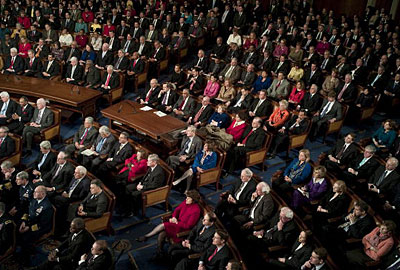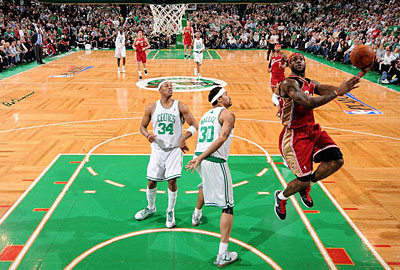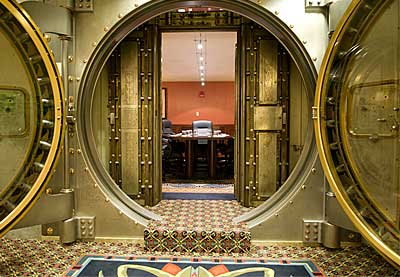Profit and prosper with the best of Kiplinger's advice on investing, taxes, retirement, personal finance and much more. Delivered daily. Enter your email in the box and click Sign Me Up.
You are now subscribed
Your newsletter sign-up was successful
Want to add more newsletters?

Delivered daily
Kiplinger Today
Profit and prosper with the best of Kiplinger's advice on investing, taxes, retirement, personal finance and much more delivered daily. Smart money moves start here.

Sent five days a week
Kiplinger A Step Ahead
Get practical help to make better financial decisions in your everyday life, from spending to savings on top deals.

Delivered daily
Kiplinger Closing Bell
Get today's biggest financial and investing headlines delivered to your inbox every day the U.S. stock market is open.

Sent twice a week
Kiplinger Adviser Intel
Financial pros across the country share best practices and fresh tactics to preserve and grow your wealth.

Delivered weekly
Kiplinger Tax Tips
Trim your federal and state tax bills with practical tax-planning and tax-cutting strategies.

Sent twice a week
Kiplinger Retirement Tips
Your twice-a-week guide to planning and enjoying a financially secure and richly rewarding retirement

Sent bimonthly.
Kiplinger Adviser Angle
Insights for advisers, wealth managers and other financial professionals.

Sent twice a week
Kiplinger Investing Weekly
Your twice-a-week roundup of promising stocks, funds, companies and industries you should consider, ones you should avoid, and why.

Sent weekly for six weeks
Kiplinger Invest for Retirement
Your step-by-step six-part series on how to invest for retirement, from devising a successful strategy to exactly which investments to choose.
Think last year produced a tsunami of red ink for the federal government? Well, a $1.3 trillion deficit is nothing to sneeze at. But the Congressional Budget Office has just come up with an estimate of how much we’ll add to the national debt in Fiscal 2011: $1.5 trillion. That means an extra $1.5 trillion will be piled atop a mountain of national debt that already exceeds $14 trillion.
It’s tough for most of us to get our heads around such a colossal number, so we did a little mental shopping.
See what you can get for a trillion these days.
The slideshow begins by clicking the navigation bar to your right:
By Kevin McCormally
January 2011


$1 Trillion Would Buy...5.6 MILLION HOMES
According to the latest figures from the National Association of Realtors, the national median price for existing single-family homes in the third quarter of 2010 was $177,900. There are about 80 million detached, single-family homes in the U.S., according to the NAR and the Census Bureau.
Next: Hours of minimum-wage labor

$1 Trillion Would Buy...140 BILLION HOURS OF WORK
That’s calculated at the federal minimum wage of $7.25 an hour. Still hard to get your mind around? How about this: One trillion dollars is enough to hire all 2.8 million residents of the state of Kansas -- men, women and children -- in full-time, minimum-wage jobs for the next 23 years.
Next: Teachers

$1 Trillion Would Pay...18 MILLIONTEACHERS' SALARIES
According to the National Education Association, the average elementary school teacher salary in the U.S. is about $55,300. NEA estimates that there are about 2 million elementary school teachers, so $1 trillion would cover their salaries for about 9 years.
Next: Members of Congress


$1 Trillion Would Buy...LEBRON JAMESFOR THE NEXT 50,000 YEARS
A lot of numbers are being thrown around about just how much the basketball superstar will be paid for playing for the Miami Heat. But let’s say it’s just $20 million a year. At that rate, $1 trillion would cover the tab for King James for the next 50 millennia. Heck, King Tut was born less than four millennia ago.
Next: Chocolate

$1 Trillion Would Buy...1.33 TRILLION CHOCOLATE BARS
Got a hankering for something sweet? A sweet $1 trillion will buy you that many 1.55-ounce Hershey’s Milk Chocolate bars at 75 cents apiece. That’s 64 million tons of chocolate, equivalent to the weight of more than 150,000 Boeing 747-400s.
Next: Celebrity divorce settlements

$1 Trillion Would Buy...4,000 CELEBRITY BREAKUPS
It’s been widely reported that Tiger Woods paid anywhere from $100 million to $750 million to settle the divorce from his wife, Elin Nordegren. Let’s assume it cost Tiger $250 million. At that rate, a trillion dollars would cover plenty more tabloid breakups.
Next: Lifetime income

$1 Trillion Would Generate...$6.2 BILLION A MONTHGUARANTEED FOR LIFE
With the demise of the company pension plan -- and its wonderful promise of regular checks in retirement -- immediate-payout annuities are garnering more attention. These investments let you trade a lump sum for a guaranteed stream of income for the rest of your life. For example, a 65-year-old man with a sweet quarter of a million nest egg to invest could buy an annuity that will pay him $1,549 a month.
Even at today’s record-low interest rates (the lower the interest rate, the more expensive it is to buy future income), $1 trillion earns its way -- and then some. The $6.2 billion monthly income figure is for men; because women live longer, on average, $1 trillion would buy a 65-year-old woman a little less. But having $5.8 billion a month to fall back on would still cover some bills.
Next: Interest on a one-year certificate of deposit

$1 Trillion Would Earn...$12.9 BILLION INTERESTON A ONE-YEAR CD
Everyone knows that interest rates on bank accounts, money-market funds and certificates of deposit are ludicrously low. But even at just 1.29% -- the best rate we could find recently -- $1 trillion socked away in a one-year CD would still yield a handsome return.
Next: U.S. Army privates

$1 Trillion Would Pay...56.8 MILLIONARMY PRIVATES
Annual basic pay for an active-duty U.S. Army private with less than two years of experience is $17,611 a year. So $1 trillion goes a mighty long way, even by military spending standards. To put that in perspective, 56.8 million is more than 100 times the total number of active-duty soldiers in the Army today.
Next: Family incomes




More from Kiplinger
Deficit a Wake-up Call for Washington
Quiz: Test Your Knowledge of the Debt and Deficit
Ben Bernanke Defends the Federal Reserve
Economic Outlook: Our Latest Forecasts on GDP, Energy Prices and More
Profit and prosper with the best of Kiplinger's advice on investing, taxes, retirement, personal finance and much more. Delivered daily. Enter your email in the box and click Sign Me Up.
-
 Dow Adds 1,206 Points to Top 50,000: Stock Market Today
Dow Adds 1,206 Points to Top 50,000: Stock Market TodayThe S&P 500 and Nasdaq also had strong finishes to a volatile week, with beaten-down tech stocks outperforming.
-
 Ask the Tax Editor: Federal Income Tax Deductions
Ask the Tax Editor: Federal Income Tax DeductionsAsk the Editor In this week's Ask the Editor Q&A, Joy Taylor answers questions on federal income tax deductions
-
 States With No-Fault Car Insurance Laws (and How No-Fault Car Insurance Works)
States With No-Fault Car Insurance Laws (and How No-Fault Car Insurance Works)A breakdown of the confusing rules around no-fault car insurance in every state where it exists.
-
 Trump Reshapes Foreign Policy
Trump Reshapes Foreign PolicyThe Kiplinger Letter The President starts the new year by putting allies and adversaries on notice.
-
 Congress Set for Busy Winter
Congress Set for Busy WinterThe Kiplinger Letter The Letter editors review the bills Congress will decide on this year. The government funding bill is paramount, but other issues vie for lawmakers’ attention.
-
 The Kiplinger Letter's 10 Forecasts for 2026
The Kiplinger Letter's 10 Forecasts for 2026The Kiplinger Letter Here are some of the biggest events and trends in economics, politics and tech that will shape the new year.
-
 What to Expect from the Global Economy in 2026
What to Expect from the Global Economy in 2026The Kiplinger Letter Economic growth across the globe will be highly uneven, with some major economies accelerating while others hit the brakes.
-
 Amid Mounting Uncertainty: Five Forecasts About AI
Amid Mounting Uncertainty: Five Forecasts About AIThe Kiplinger Letter With the risk of overspending on AI data centers hotly debated, here are some forecasts about AI that we can make with some confidence.
-
 Worried About an AI Bubble? Here’s What You Need to Know
Worried About an AI Bubble? Here’s What You Need to KnowThe Kiplinger Letter Though AI is a transformative technology, it’s worth paying attention to the rising economic and financial risks. Here’s some guidance to navigate AI’s future.
-
 Will AI Videos Disrupt Social Media?
Will AI Videos Disrupt Social Media?The Kiplinger Letter With the introduction of OpenAI’s new AI social media app, Sora, the internet is about to be flooded with startling AI-generated videos.
-
 What Services Are Open During the Government Shutdown?
What Services Are Open During the Government Shutdown?The Kiplinger Letter As the shutdown drags on, many basic federal services will increasingly be affected.
